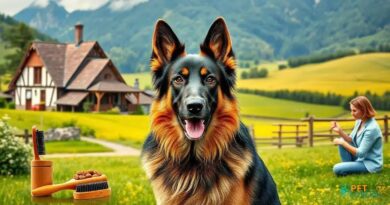What is Hygiene
What is Hygiene in Dogs?
Hygiene in dogs refers to the practices and routines that ensure the cleanliness and health of your canine companion. This encompasses a variety of activities, including regular bathing, grooming, and dental care. Maintaining proper hygiene is crucial not only for your dog’s physical health but also for their emotional well-being. A clean dog is often a happy dog, as it prevents discomfort and promotes a positive environment.
The Importance of Regular Bathing
Bathing your dog regularly is an essential aspect of hygiene. It helps remove dirt, debris, and allergens that can accumulate in their fur. Depending on the breed and lifestyle of your dog, the frequency of baths may vary. For instance, dogs that spend a lot of time outdoors may require more frequent baths than those that are primarily indoor pets. Using dog-specific shampoos is vital to avoid skin irritation and to maintain the natural oils in their coat.
Grooming: A Key Component of Hygiene
Grooming is another critical element of dog hygiene. Regular brushing helps to prevent matting, reduces shedding, and promotes healthy skin by distributing natural oils. Different breeds have different grooming needs; long-haired breeds may require daily brushing, while short-haired breeds might only need it weekly. Additionally, grooming sessions can be an excellent opportunity to check for signs of skin issues, parasites, or other health concerns.
Dental Hygiene for Dogs
Dental hygiene is often overlooked but is a vital part of your dog’s overall health. Poor dental care can lead to periodontal disease, which can affect not only your dog’s mouth but also their heart and kidneys. Regular brushing of your dog’s teeth, along with dental chews and professional cleanings, can help maintain their oral health. It’s recommended to introduce dental care routines early in your dog’s life to ensure they are comfortable with the process.
Ear and Eye Care
Maintaining hygiene also includes caring for your dog’s ears and eyes. Regularly checking and cleaning your dog’s ears can prevent infections caused by wax buildup or moisture. Similarly, keeping an eye on your dog’s eyes for any signs of redness, discharge, or irritation is essential. If you notice any abnormalities, consult your veterinarian for appropriate treatment.
Nail Care and Hygiene
Nail care is another important aspect of hygiene for dogs. Overgrown nails can cause pain and lead to mobility issues. Regular trimming helps prevent these problems and keeps your dog comfortable. Depending on your dog’s activity level, you may need to trim their nails every few weeks. If you’re unsure how to do this safely, consider seeking guidance from a professional groomer or veterinarian.
Hygiene in Dog Living Spaces
Hygiene extends beyond the dog itself; it also includes their living environment. Regularly cleaning your dog’s bedding, toys, and feeding areas is crucial to prevent the buildup of bacteria and allergens. Washing these items in hot water and using pet-safe cleaning products can help maintain a clean and healthy space for your dog to thrive.
Nutrition and Hygiene
Nutrition plays a significant role in your dog’s hygiene and overall health. A balanced diet contributes to healthy skin, a shiny coat, and strong teeth. Ensure that your dog is receiving high-quality food that meets their specific nutritional needs. Additionally, providing fresh water daily is essential for their hydration and helps maintain their overall hygiene.
Recognizing Signs of Poor Hygiene
Being aware of the signs of poor hygiene in dogs is crucial for early intervention. Symptoms such as excessive scratching, bad breath, ear odor, or visible dirt and debris in their coat can indicate hygiene issues. Regular check-ups with your veterinarian can help identify and address any hygiene-related concerns before they escalate into more serious health problems.
Creating a Hygiene Routine
Establishing a consistent hygiene routine for your dog is key to ensuring their health and happiness. This routine should include regular bathing, grooming, dental care, and monitoring their living environment. By prioritizing hygiene, you not only enhance your dog’s quality of life but also strengthen the bond between you and your furry friend.




